Pregnancy check-ups and labour
Pregnancy and birth monitoring comprises all the necessary examinations to ensure a healthy pregnancy and achieve a satisfying birth experience resulting in the arrival of a healthy baby
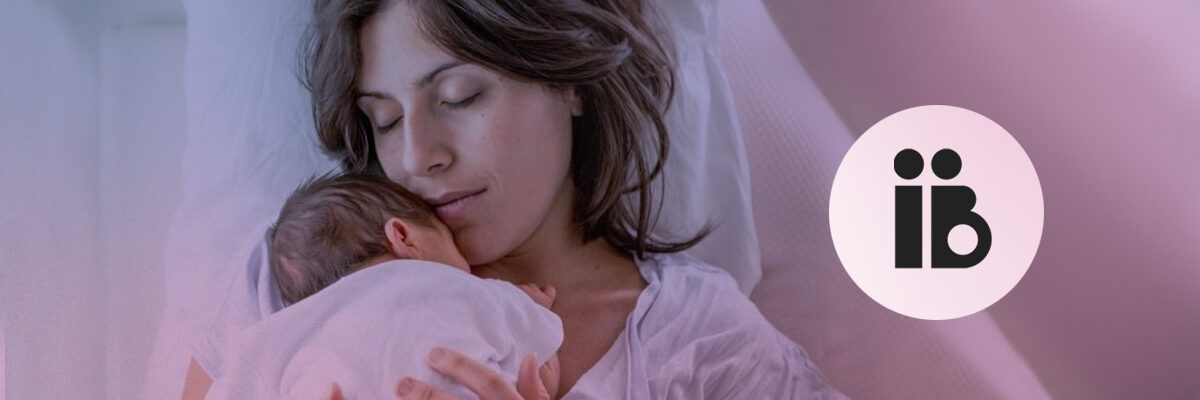
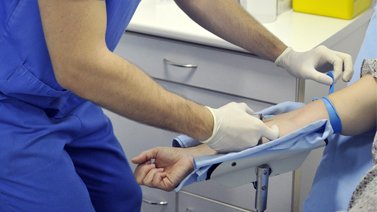
The pregnancy test in the urine must be conducted some days after the lack of menstruation (3 or 4 days are enough). In this test, the presence of a pregnancy hormone, chorionic gonadotropin, is evaluated, and it is carried out with the first urine of the morning out using one of the many home testing which are available at the Pharmacy
If the result is negative, possibly because it has been conducted at a very early stage, we recommend that it is repeated after several days. In certain cases, especially if any assisted reproductive technique has been carried out, we prefer to use a blood test, because it is more accurate and can be used at an earlier date. More information

The first pregnancy symptom is the absence of menstruation during the expected days. However, many times and very early on, several conspicuous signs appear in the woman. Amongst the most frequent ones, we find:
- Digestive alterations. The most typical and early ones are nauseas and vomiting. Afterwards, it will be associated with constipation
- Sensitive breasts and with an increase in size
- Sleepy and tiredness sensation
- Perception of bad smells
- Being moody
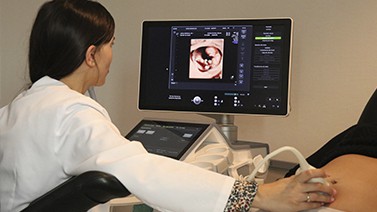
It is essential to carry out a good control of the pregnancy with the appropriate visits to the gynaecologist. The rhythm and number of visits can depend on each case, being especially frequent if the pregnancy is considered “at risk” or if it is a multiple pregnancy. In general, we recommend visits on a monthly basis, till the last month, when we prefer it to be on a weekly basis.
he first visit must be carried out at an early stage, normally between the sixth and eighth week, with the following aims:
- Ultrasound scan confirmation
- To date the gestation and calculate the date of birth
- To reject pathology (miscarriage, extra uterine pregnancy, etc)
- To ask for the first blood tests
- To indicate hygienic and food advise
- Pharmacological treatment, if required
- Accurate information about the pre-natal diagnostic techniques
In every visit we check the expectant mother, and seek to answer questions and concerns about any symptoms. In every visit, the weight and tension are noted, an ultrasound scan is conducted, a blood test is carried out (when it proceeds), a pharmacological treatment is recommended, if it is required, and the information about the pregnancy process is given
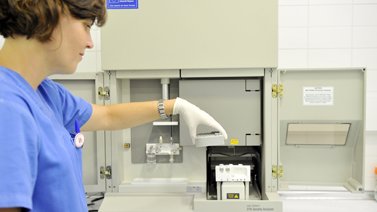
During the gestation, and under the gynaecologist criteria, several complementary tests are indicated and conducted, such as blood and urine tests, ultrasound scans orantenatal diagnosis tests.
The analyses carried out during almost every pregnancy are three, distributed in the corresponding three-month periods:
- First three-month period: basic blood and urine test, together with the antibody analysis to reject several infections: rubella, toxoplasmosis, syphilis, AIDS and hepatitis.
- Second three-month period: the O´Sullivan´s test is carried out for the diagnosis of gestational diabetes.
- Third three-month period: together with the basic analysis, coagulation tests are conducted
In the last weeks (between 35th and 37th) cultures of vaginal secretion are conducted in order to detect the presence of streptococcus. If the result is positive, antibiotics for the mother will be indicated for the dilatation moment.
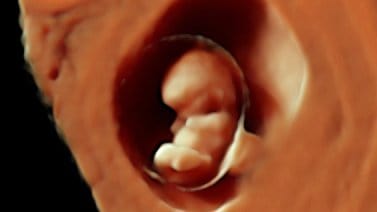
The ultrasound scan is an essential exploration nowadays for the control of any pregnancy. According to the moment that is conducted, it has several indications. During the first visits, it is carried out to evaluate the vitality and number of embryos, and to establish, as accurately as possible, the gestational age.
The use of the ultrasound scan is also essential in the different prenatal diagnostic tests: markers of chromosomopathy, detection of malformations, and as a support of the invasive techniques: chorial biopsy and amniocentesis.
As the pregnancy is evolving, several ultrasound scans are carried out to check-up that the pregnancy is proceeding normally and with measurements of the foetus (biometry), situation and characteristics of the placenta and foetal position.
Finally, the ultrasound scan and its several applied technologies (such as Doppler) are also an instrument to check up the well-being of the foetus, since it allows us to check up in an objective way, the foetal oxygenation at any time.
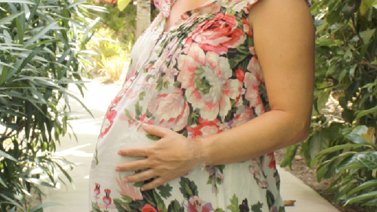
By now, the functional and anatomical changes induced by the gestation are known and described: the body of the woman is perfectly prepared to assume them. We have already described the early changes: feeling nauseous, vomiting, increased and sensitive breasts, etc.
As gestation progresses, the woman can feel more sensitive, and, sometimes, tired and weary. She will exhibit higher skin pigmentation, and, in some cases, have the appearance of stretch marks and even hair increase, which will be temporary. It is also common to have constipation problems, in some cases together with haemorrhoids.
During the third three-month period and due to the increase of the uterus that compresses the neighbouring organs, muscular-articular symptoms, cramps and lumbago appear. Mictional symptoms are also frequent, and finally, the appearance or worsening of haemorrhoids and varicose veins.

Daily hygiene is essential. The woman can perfectly easily have a bath, or even go swimming in the sea. If the skin is a bit dry, moisturizing cream can be used. In order to prevent stretch-marks, it is convenient to use specific creams on a daily basis.
Loose-fitting and well-ventilated garments must be worn. High-heeled footwear is not recommended, nor does stockings or tight-fitting sock that produce local compression in the legs.
Dental hygiene is very important. Tooth and gum care must be intensified by means of correct brushing. If it is necessary she should visit the dentist, even during the first months of pregnancy.
A healthy and well-balanced diet is essential for everyone, but especially for a pregnant woman. A wholesome and nutritious diet does not mean “eating for two people”. It consists of eating a variety of food, avoiding fats, fried food, excessive starches, uncooked meat, sausages and other meats stuffed into animal intestines, alcoholic drinks, candies, hot spices and sparkling liquids.
The diet must be rich in vitamins and minerals, which we find in fresh fruits and vegetables. During her pregnancy, the woman has a greater need for iron, proteins and calcium. The proteins are found in meat, eggs and fish, and the calcium in milk and dairy products. Usually it is necessary to take a vitamin, iron and calcium supplement, especially from the second three-month period on, because with the pregnancy the needs increase and what is included in the diet is not always enough.
The woman can keep her work activity except if any complication arises; anyway, violent exercises and raising weight must be avoided.
As far as the physical activity is concerned, she must avoid all intense competitive sports, which are violent and uncomfortable. However, going for walks every day for, say, an hour and a half is recommended, as well as going swimming.
In general, a pregnant woman must increase number of hours when she rests. If it is possible, she should sleep for nine to ten hours a night.
Travelling is not advised against, unless you are travelling to places which have insufficient or non-existent sanitary services. At the end of the gestation period the woman should avoid long journeys. Travelling by plane is not forbidden.
She must not take medicines without medical control, since many of them can be contra-indicated, especially during the first months. Long treatments should be reduced to the minimum. Sometimes it is necessary to take medicines, where the risk of taking them is far less than the risk from the illness which is being treated. Every illness has its chosen treatment during the pregnancy. To sum up, she should not take any medicine without previously consulting the gynaecologist.
Exposure to x rays can be very dangerous, therefore this kind of procedure can only be given if strictly necessary.
With respect to tobacco, alcohol and the use of drugs, it is highly recommended to stop these habits at once. If you are a smoker, this is the right time to quit it for good. If this task ends up being a too difficult one, it is imperative that you reduce drastically the consumption of cigarettes to a minimum. If you are a drug user or abuser, you must inform your doctor straight away most importantly at the time of labour.
Couple’s sexual relations are not a static phenomenon; on the contrary, they change rapidly along the couples lives. Pregnancy is a different stage and it brings with it physical and psychic changes that make sexual relations more difficult to perform. Sexual relations needn’t be stopped; only extra care it’s to be taken in certain situations. Only if requested by your doctor, sexual intercourse must be suppressed obviously it takes a strong reason for this to happen, and example of this would clearly be bleeding or even more concerning, premature labour.
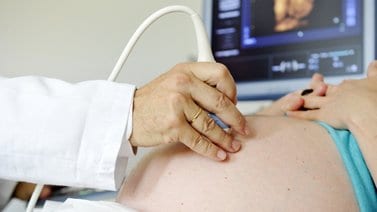
Along your pregnancy, there will be a number of symptoms that must be recognised and that must be consulted with your gynaecologist. A list of the most important symptoms is shown below:
- Vaginal bleeding
- Dehydration
- Abdominal pain
- Difficulty to stop vomiting
- Very strong head aches
- Fainting and dizziness
- Abrupt oedema
- Urinary Symptoms
- Skin rush and general itchiness
- Regular contractions
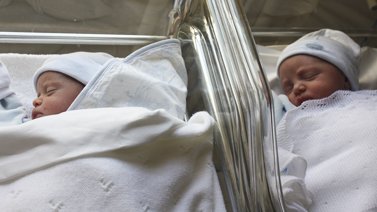
Labour is a unique experience that will be gladly remembered if no complications arise. Antenatal classes are an excellent way to prepare for the awaited moment.
Pregnancy takes more or less 40 weeks. It is said that a pregnant woman has come to term between weeks 37 and 40, it is also important that labour’s symptoms can be recognised around this time. The most telling ones are contractions and waters breaking.
In the event of breaking your waters, regardless of the type or quantity of the liquid observed, you must get to hospital as soon as possible. At this stage patients are checked and after confirming the situation, labour gets induced.
With regard to the contractions, it is their frequency and the intensity that indicates the beginning of labour. If this is the first baby, after three contractions lasting thirty seconds each and in less than ten minutes it is recommended to stay in hospital. On the other hand, if this is the second baby, it is advisable to get to hospital as soon as contractions lasting thirty seconds each in approximately five minutes, happen.
If after 40 weeks no labour symptoms appear, doctors would like to keep the foetus monitored and most likely you will be admitted in hospital to proceed with an inducted labour between weeks 40 and 41. This will always be at the doctors criteria.
Labour at Instituto Bernabeu will always be assisted by the corresponding medical team: gynaecologist, midwife, paediatrician and anaesthetist. It will take, on a normal trouble free delivery, two days before given the all clear to go back home. If the delivering of a baby is via a caesarean, then it will usually take around five days before you can go home, counting on no complications arising after the birth
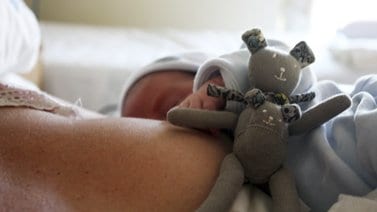
Puerperium is the period of time between birth and the next six weeks. At this time uterine secretions will happen, they are totally physiological. The patient, must ensure the taking of a very well balanced diet, similar to the one had while pregnant including all vitamins and iron and specially a very thorough hygiene. Extra care must be taken with episiotomy and caesarean wounds.
There is no doubt that breastfeeding your baby is the best choice, given that everything it contains is exactly what your baby needs, moreover it encourages mother and newborn to build a strong bond between them, presenting you baby with a better chance to start a healthier life. It is important to place the baby on the mother’s chest soon after birth so that he can follow his reflex to suck therefore, stimulating milk production.
In the event of mother being RH(-) and newborn being RH(+) doctors will proceed to vaccinate the baby using Anti-D the very next day after birth.
The first few days of puerperium, will also, in some women, bring “postnatal depression“. It usually lasts a few days, more or less a week in which some particular symptoms will appear: sadness, lack of interest towards the baby, head aches, insomnia, tiredness, anxiety, etc. It is very important to get help and comprehension from your family, the symptoms will soon disappear; if in they wont, advice must be sought.
Any woman going through the puerperium, have to be familiar with a number of telling symptoms that must be taken seriously consulting with your doctor as soon as they appear:
- Very high temperature
- Unstoppable internal bleeding
- Smelly uterine secretions
- Mastitis symptoms ( pain or redness of the breasts )
- Badly looking wounds (episiotomy or caesarean )
- Urinary symptoms
After labour, sexual relations can be restarted as soon as the normal discomfort has disappeared. Even if still breastfeeding, pregnancy can occur, therefore, you must be aware that consecutive gestations are not recommended. Puerperium is the best time to restudy the best contraceptive method for you. Advice will also be given regarding contraception, at the post natal revisions.